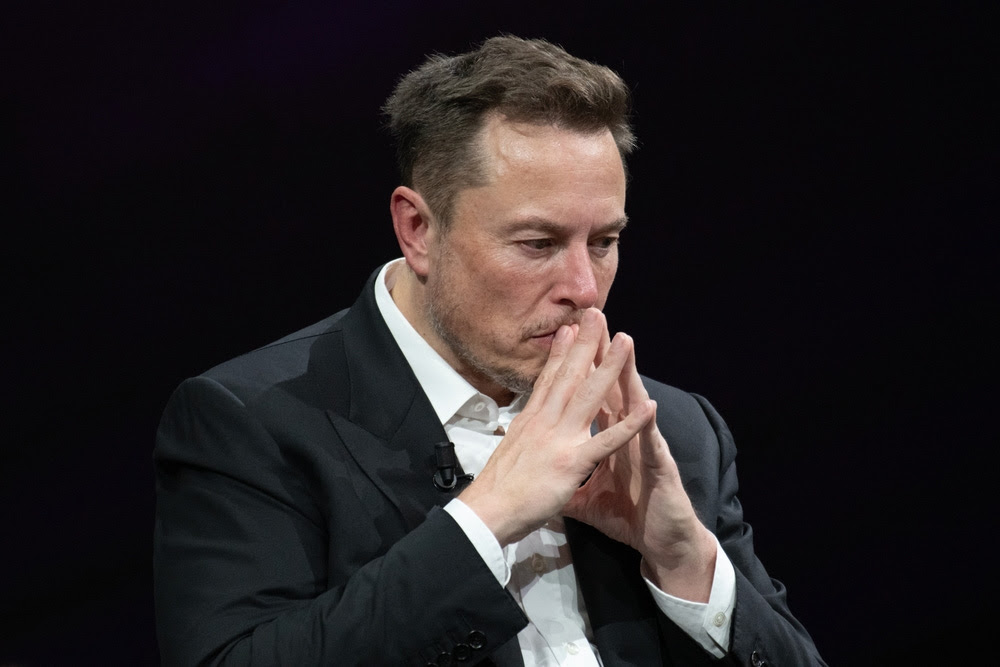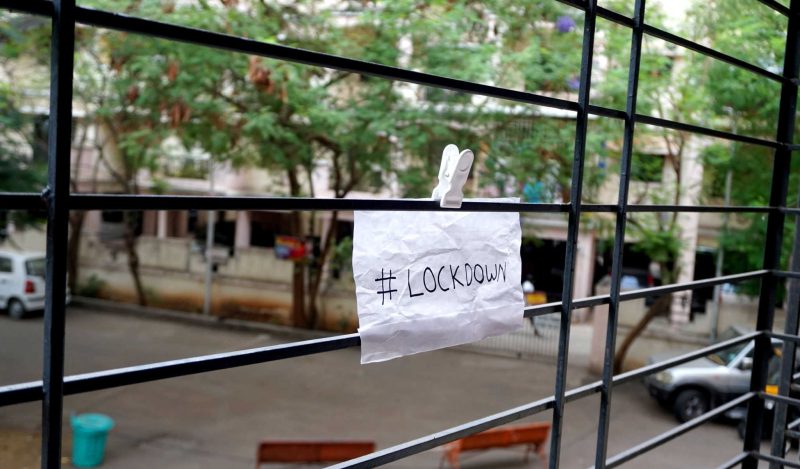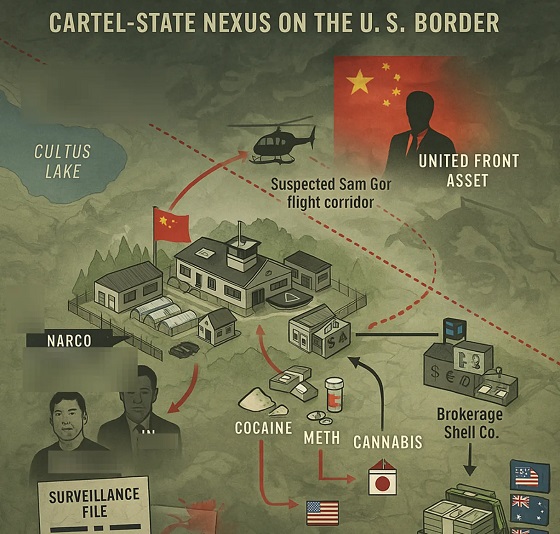Business
Trudeau leaves office with worst economic growth record in recent Canadian history

From the Fraser Institute
By Ben Eisen
In the days following Prime Minister Justin Trudeau’s resignation as leader of the Liberal Party, there has been much ink spilt about his legacy. One effusively positive review of Trudeau’s tenure claimed that his successors “will be hard-pressed to improve on his economic track record.”
But this claim is difficult to square with the historical record, which shows the economic story of the Trudeau years has been one of dismal growth. Indeed, when the growth performance of Canada’s economy is properly measured, Trudeau has the worst record of any prime minister in recent history.
There’s no single perfect measure of economic success. However, growth in inflation-adjusted per-person GDP—an indicator of living standards and incomes—remains an important and broad measure. In short, it measures how quickly the economy is growing while adjusting for inflation and population growth.
Back when he was first running for prime minister in 2015, Trudeau recognized the importance of long-term economic growth, often pointing to slow growth under his predecessor Stephen Harper. On the campaign trail, Trudeau blasted Harper for having the “worst record on economic growth since R.B. Bennett in the depths of the Great Depression.”
And growth during the Harper years was indeed slow. The Harper government endured the 2008/09 global financial crisis and subsequent weak recovery, particularly in Ontario. During Harper’s tenure as prime minister, per-person GDP growth was 0.5 per cent annually—which is lower than his predecessors Brian Mulroney (0.8 per cent) and Jean Chrétien (2.4 per cent).
So, growth was weak under Harper, but Trudeau misdiagnosed the causes. Shortly after taking office, Trudeau said looser fiscal policy—with more spending, borrowing and bigger deficits—would help spur growth in Canada (and indeed around the world).
Trudeau’s government acted on this premise, boosting spending and running deficits—but Trudeau’s approach did not move the needle on growth. In fact, things went from bad to worse. Annual per-person GDP growth under Trudeau (0.3 per cent) was even worse than under Harper.
The reasons for weak economic growth (under Harper and Trudeau) are complicated. But when it comes to performance, there’s no disputing that Trudeau’s record is worse than any long-serving prime minister in recent history. According to our recent study published by the Fraser Institute, which compared the growth performance of the five most recent long-serving prime ministers, annual per-person GDP growth was highest under Chrétien followed by Martin, Mulroney, Harper and Justin Trudeau.
Of course, some defenders will blame COVID for Trudeau’s poor economic growth record, but you can’t reasonably blame the steep but relatively short pandemic-related recession for nearly a decade of stagnation.
There’s no single perfect measure of economic performance, but per-person inflation-adjusted economic growth is an important and widely-used measure of economic success and prosperity. Despite any claims to the contrary, Justin Trudeau’s legacy on economic growth is—in historical terms—dismal. All Canadians should hope that his successor has more success and oversees faster growth in the years ahead.
Business
Five key issues—besides Trump’s tariffs—the Carney government should tackle

From the Fraser Institute
By Jake Fuss and Grady Munro
On Tuesday in Ottawa, Prime Minister Mark Carney unveiled his new cabinet, consisting of 28 ministers and 10 secretaries of state. They have their work cut out for them. In addition to President Trump’s trade war, the Carney government must tackle several other critical issues that have persisted since long before Trump was re-elected.
First and foremost, the Carney government should address stagnant living standards for Canadians. From the beginning of 2016 to the end of 2024, per-person GDP—a broad measure of living standards—grew by only 2.5 per cent in Canada compared to 18.7 per cent in the United States (all figures adjusted for inflation). While U.S. tariffs threaten to further reduce living standards in Canada, the marked decline began almost a decade ago.
There’s a similar gloomy story in worker incomes as Canadians continue to fall further behind their American counterparts. According to the latest data, median employment earnings (in Canadian dollars) in all 10 provinces ranked lower than in every U.S. state in 2022—meaning Americans in low-earning states such as Mississippi ($42,430), Louisiana ($43,318) and Alabama ($43,982) typically earned higher incomes than Canadians in the highest-earning province of Alberta ($38,969).
Why is this happening?
Part of the problem is the state of federal finances. Even Prime Minister Carney has criticized the Trudeau government’s approach to spending increases and debt accumulation, which diverts taxpayer dollars away from programs and towards debt interest payments, and burdens younger generations with higher taxes in the future. But unfortunately, according to Carney’s election platform, his government plans to borrow $93.4 billion more over the next four years compared to the Trudeau government’s last spending plan. The prime minister and his new cabinet should rethink this approach before tabling their first budget.
The Carney government should also cut taxes. Canadians in every province face higher combined (federal and provincial) personal income tax (PIT) rates than Americans in virtually every U.S. state across a variety of income levels. Canada’s PIT rates are similarly uncompetitive compared to other advanced countries. High taxes impose a burden on families, but they also make it harder for Canada to attract and retain high-skilled workers (e.g. doctors, engineers), entrepreneurs and investment, which drives economic growth and prosperity.
Finally, the Carney government should meaningfully address Canada’s housing affordability crisis. Housing costs have risen dramatically due to a significant gap between the demand for houses and the supply of housing units. In 2024, construction began on 245,367 new housing units nationwide while the population grew by 951,717 people due in part to one of the highest levels of immigration in Canadian history. This problem has been growing for decades—housing starts per year have remained stuck at essentially the same level they were in the 1970s while annual population growth has more than tripled. If policymakers want to help lower housing costs, they must reduce the imbalance between population growth and housing starts.
For the federal government, that means aligning immigration targets more closely to housing supply and rethinking policies that increase housing demand such as homebuyer tax credits and First Home Savings Accounts. Meanwhile, provincial and local governments should reduce red tape and construction costs to increase supply.
The Carney government has its work cut out for it. Besides U.S. tariffs, Canadians face several critical issues, which have persisted long before Trump was re-elected, and will continue unless something changes.
Business
Washington Got the Better of Elon Musk

The tech tycoon’s Department of Government Efficiency was prevented from achieving its full reform agenda.
It seems that the postmodern world is a conspiracy against great men. Bureaucracy now favors the firm over the founder, and the culture views those who accumulate too much power with suspicion. The twentieth century taught us to fear such men rather than admire them.
Elon Musk—who has revolutionized payments, automobiles, robotics, rockets, communications, and artificial intelligence—may be the closest thing we have to a “great man” today. He is the nearest analogue to the robber barons of the last century or the space barons of science fiction. Yet even our most accomplished entrepreneur appears no match for the managerial bureaucracy of the American state.
Musk will step down from his position leading the Department of Government Efficiency at the end of May. At the outset, the tech tycoon was ebullient, promising that DOGE would reduce the budget deficit by $2 trillion, modernize Washington, and curb waste, fraud, and abuse. His marketing plan consisted of memes and social media posts. Indeed, the DOGE brand itself was an ironic blend of memes, Bitcoin, and Internet humor.
Three months later, however, Musk is chastened. Though DOGE succeeded in dismantling USAID, modernizing the federal retirement system, and improving the Treasury Department’s payment security, the initiative as a whole has fallen short. Savings, even by DOGE’s fallible math, will be closer to $100 billion than $2 trillion. Washington is marginally more efficient today than it was before DOGE began, but the department failed to overcome the general tendency of governmental inertia.
Musk’s marketing strategy ran into difficulties, too. His Internet-inflected language was too strange for the average citizen. And the Left, as it always does, countered proposed cuts with sob stories and personal narratives, paired with a coordinated character-assassination attempt portraying Musk as a greedy billionaire eager to eliminate essential services and children’s cancer research.
However meretricious these attacks were, they worked. Musk’s popularity has declined rapidly, and the terror campaign against Tesla drew blood: the company’s stock has slumped in 2025—down around 20 percent—and the board has demanded that Musk return to the helm.
But the deeper problem is that DOGE has always been a confused effort. It promised to cut the federal budget by roughly a third; deliver technocratic improvements to make government efficient; and eliminate waste, fraud, and abuse. As I warned last year, no viable path existed for DOGE to implement these reforms. Further, these promises distracted from what should have been the department’s primary purpose: an ideological purge.
Ironically, this was the one area where DOGE made major progress. In just a few months, the department managed to dismantle one of the most progressive federal agencies, USAID; defund left-wing NGOs, including cutting over $1 billion in grants from the Department of Education; and advance a theory of executive power that enabled the president to slash Washington’s DEI bureaucracy.
Musk also correctly identified the two keys to the kingdom: human resources and payments. DOGE terminated the employment of President Trump’s ideological opponents within the federal workforce and halted payments to the most corrupted institutions, setting the precedent for Trump to withhold funds from the Ivy League universities. At its best, DOGE functioned as a method of targeted de-wokification that forced some activist elements of the Left into recession—a much-needed program, though not exactly what was originally promised.
Ultimately, DOGE succeeded where it could and failed where it could not. Musk’s project expanded presidential power but did not fundamentally change the budget, which still requires congressional approval. Washington’s fiscal crisis is not, at its core, an efficiency problem; it’s a political one. When DOGE was first announced, many Republican congressmen cheered Musk on, declaring, “It’s time for DOGE!” But this was little more than an abdication of responsibility, shifting the burden—and ultimately the blame—onto Musk for Congress’s ongoing failure to take on the politically unpopular task of controlling spending.
With Musk heading back to his companies, it remains to be seen who, if anyone, will take up the mantle of budget reform in Congress. Unfortunately, the most likely outcome is that Republicans will revert to old habits: promising to balance the budget during campaign season and blowing it up as soon as the legislature convenes.
The end of Musk’s tenure at DOGE reminds us that Washington can get the best even of great men. The fight for fiscal restraint is not over, but the illusion that it can be won through efficiency and memes has been dispelled. Our fate lies in the hands of Congress—and that should make Americans pessimistic.
Subscribe to Christopher F. Rufo.
For the full experience, upgrade your subscription.
-

 Alberta2 days ago
Alberta2 days agoAlberta’s oil bankrolls Canada’s public services
-

 Business2 days ago
Business2 days agoThe ESG Shell Game Behind The U.S. Plastics Pact
-

 Great Reset24 hours ago
Great Reset24 hours agoThe WHO Pandemic Treaty could strip Canada of its ability to make its own health decisions
-

 Fraser Institute23 hours ago
Fraser Institute23 hours agoCarney government’s housing plan poses major risks to taxpayers
-

 International2 days ago
International2 days agoBongino announces FBI will release files on COVID cover up, Mar-a-Lago Raid and more
-

 espionage23 hours ago
espionage23 hours agoPro-Beijing Diaspora Group That Lobbied to Oust O’Toole Now Calls for Poilievre’s Resignation Amid PRC Interference Probes
-

 espionage17 hours ago
espionage17 hours agoOttawa Raises Alarm With Beijing Over Hong Kong Detention of CPC Candidate Joe Tay’s Family
-

 Health23 hours ago
Health23 hours agoTrump’s surgeon general pick is a threat to Big Pharma, not medical freedom








